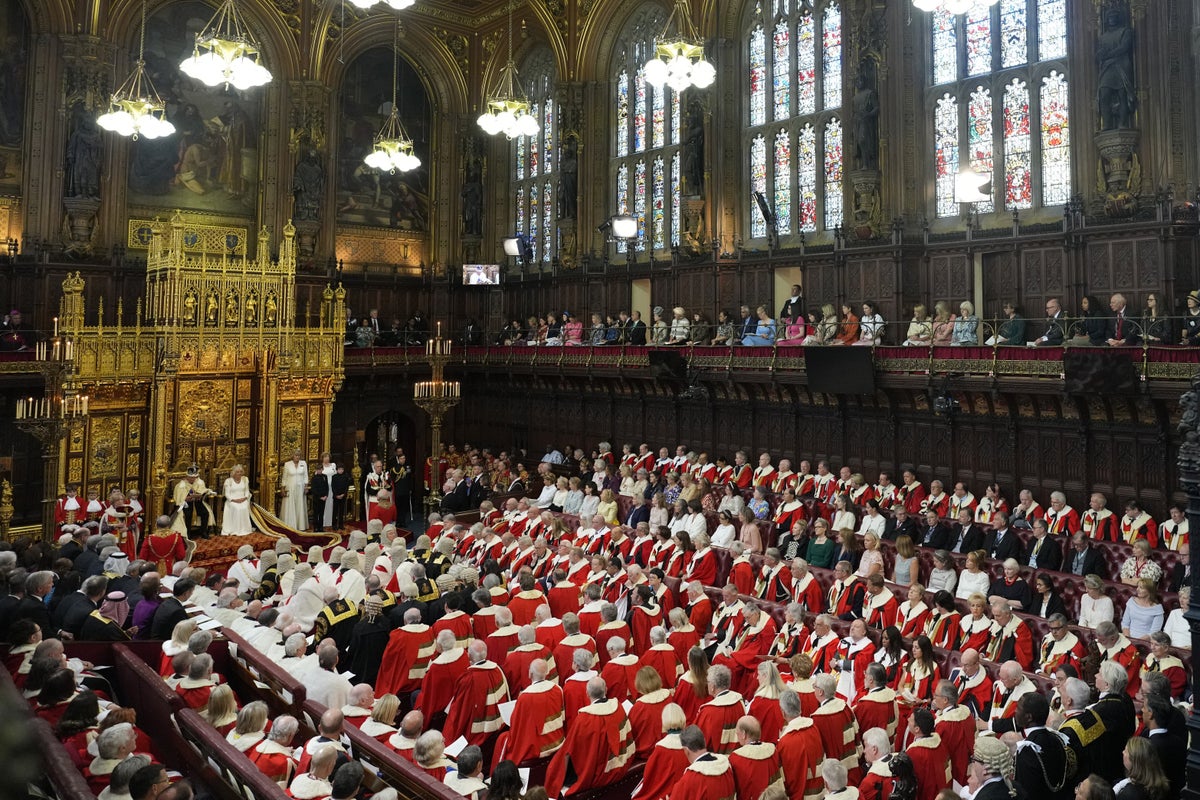
MPs have rejected an attempt by the House of Lords to block the expulsion of hereditary peers from the upper chamber.
The House of Lords (Hereditary Peers) Bill is set to abolish the 92 seats reserved for those who are there by right of birth.
There are currently 85 sitting hereditary peers after the suspension of by-elections last year pending this legislation.
These by-elections involve aristocrats voting on who should fill any vacancy that appears in the 92 reserved seats, with only those on the register of hereditary peers eligible to stand.
In July, peers backed a Conservative amendment to the Bill that would block the expulsion of sitting hereditary peers, and instead permanently end the by-elections, meaning the number of hereditary peers would gradually decrease as individuals die or retire.
However, the Commons rejected this by 336 votes to 77, majority 259.
Paymaster General Nick Thomas-Symonds said this amendment would “fundamentally undermine the core purpose of the Bill”.
He said: “The Government has a manifesto commitment to bring about an immediate reform by removing the right of hereditary peers to sit and vote in the House of Lords.
“This amendment would allow existing hereditary peers, the youngest of whom is 39, to remain in the Lords for decades to come.”
Mr Thomas-Symonds said there had been a “broad consensus” that the hereditary route should end both in the Commons and the Lords.
He stressed it was not a judgment on individual hereditary peers but “on the principle” and there was no barrier for any of them being nominated as life peers.
Backing the Government, Liberal Democrat Cabinet Office spokesperson Sarah Olney said the amendment would “dilute this Bill and would continue the system of hereditary peers”.
But shadow Cabinet Office minister Alex Burghart said the Government was “doing something clumsy and foolish” by removing hereditary peers.
He said: “What we’re going to see is the removal of a group of public servants in order for them to make way for Labour placement, for Labour stooges, for a huge act of patronage.”
MPs also rejected an amendment to the Bill that would ban the use of unsalaried ministers in the House of Lords.
There have been long-standing concerns about Government frontbenchers in the unelected house not being remunerated for their official duties.
By law, the maximum number of paid ministerial posts is 109, capped at 95 in the Commons.
This has led to the use of unsalaried ministers, particularly in the upper chamber, who also face missing out on the daily Lords allowance of £361 if their Government work prevents them from “clocking in”.
This situation has led to complaints that ministerial roles are only able to be taken by those who can afford to take an unpaid position.
The Conservative frontbench in the Lords put forward an amendment that aimed to tackle this issue, but the Commons rejected this by 331 votes to 73, majority 258.
Mr Thomas-Symonds said he understood the “strength of feeling” and said ministers in the Lords “work incredibly hard”, but said the amendment would not fix the problem.
He said: “It would not result in all current Lords ministers receiving a salary.
“It would, in fact, instead, mean that the number of Lords ministers would, in the future, be reduced.”
He argued that, to increase the number of ministers in the Lords receiving a salary, the limit on the number of ministers who can be paid would need to be increased.
However, Mr Burghart said that the Government could “reduce the number of paid ministers in the Commons and have more paid ministers in the Lords”.
Meanwhile, Ms Olney agreed that “all ministers should be properly remunerated” but argued this “is an issue for another occasion”.
She said: “The solution to the issue of democratic accountability and proper remuneration of our ministers does not lie in this poorly drafted amendment.
“Instead, we must push for wholesale reform of the House of Lords.”
